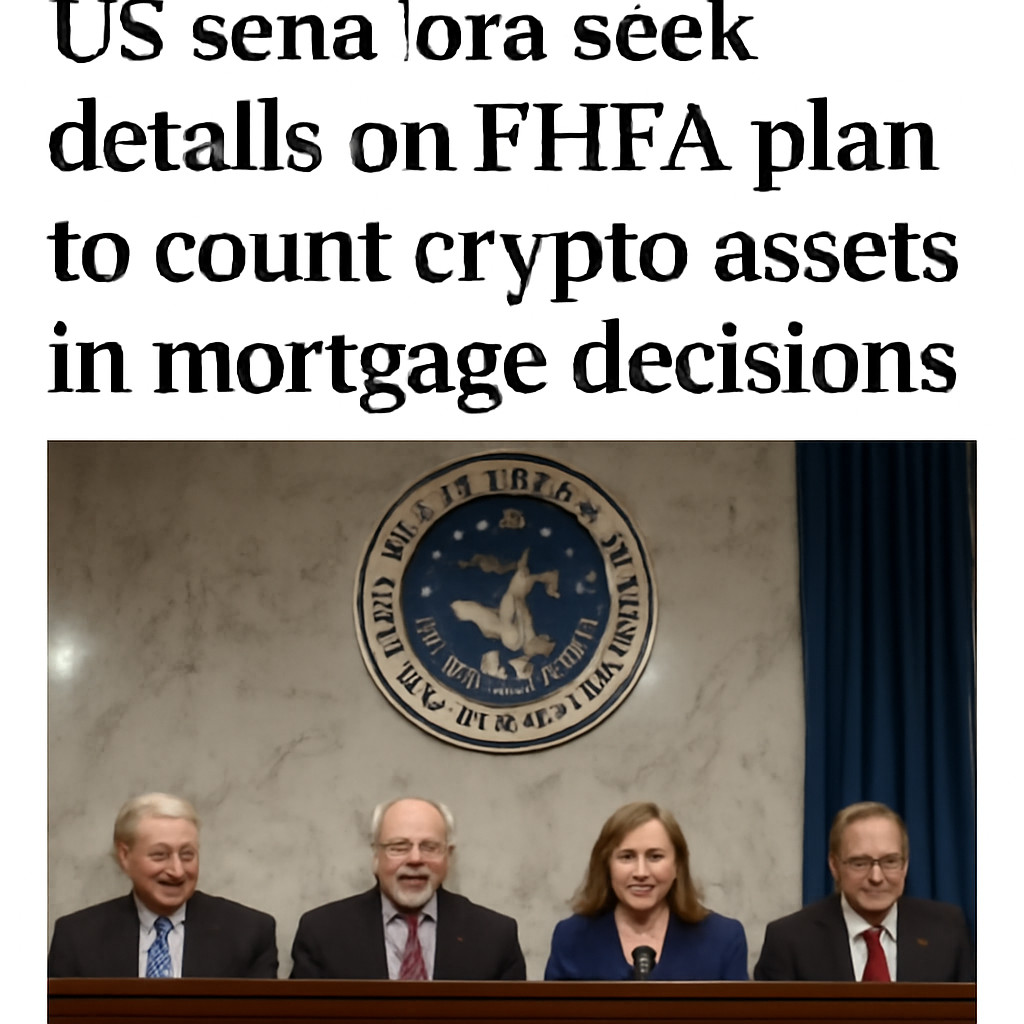US Senators Request Details on FHFA Plans for Counting Crypto Assets in Mortgage Decisions

by Admin |
On 28 July 2025 a bloc of United States Senate Democrats led by Jeff Merkley sent a 3-page letter to Federal Housing Finance Agency (FHFA) director William Pulte requesting extensive information about his surprise 24 June directive that instructs mortgage giants Fannie Mae and Freddie Mac to create a framework for counting cryptocurrency holdings when evaluating single-family mortgage applications. Co-signers Elizabeth Warren, Chris Van Hollen, Mazie Hirono and Bernie Sanders argue the initiative could inject extreme price volatility into federally backed home-loan portfolios, citing past liquidity crunches that left retail investors unable to exit positions during market stress. They note that current rules bar lenders from considering crypto unless it is first converted to dollars, a safeguard the order appears to override. The lawmakers also raise ethics questions. Public financial disclosures show Pulte’s spouse controls up to $2 million in digital assets, and the senators point out that Pulte chairs the boards of both government-sponsored enterprises, meaning he would approve the very crypto proposals he directed them to draft. They further highlight President Trump’s extensive business ties to digital-asset ventures, suggesting potential undue influence at the highest level. The letter asks 17 detailed questions covering legal authority, risk analyses, consumer-protection measures and any communications with White House or industry figures. It sets an 7 August response deadline and demands that FHFA outline a transparent process for public comment. Pulte has framed the directive as a “modernization” of asset qualification standards that will give creditworthy crypto holders access to cheaper mortgages, but housing-policy groups and some Republican representatives have already warned that taxpayer exposure could balloon if token prices crash. The senators’ probe adds fresh political pressure to an initiative that, if adopted, would mark the deepest integration of cryptocurrencies into US housing finance since the 2008 crisis.
Comments (0)